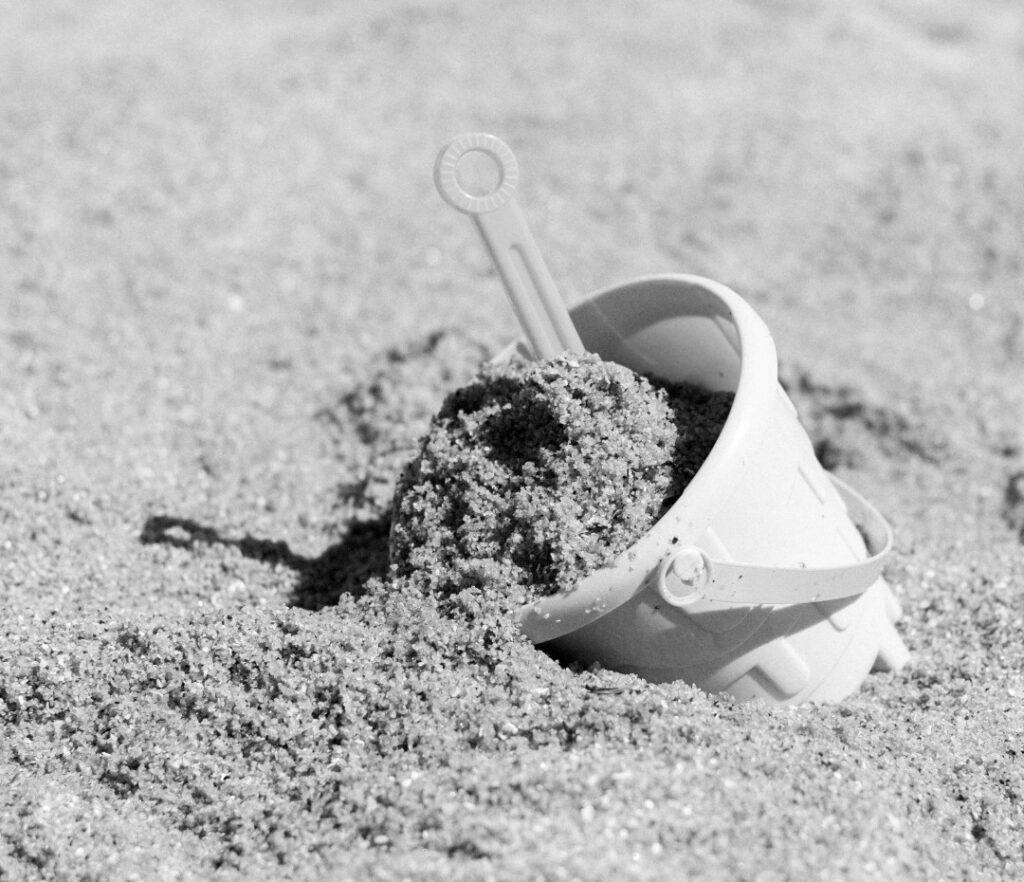This article is made in response to a comment from a reader who said her autistic child has been eating sand.
On request we have researched this behaviour and come up with the following reasons why it may be taking place.
Autism and eating sand
Life raising an autistic child can spring all kinds of surprises. Just when you think that you have your head around their quirky behaviours, along comes something new.
But what is it with eating sand?
The first thing to note is that believe it or not this is quite a common behaviour. Our research showed that a number of parents are facing this illogical puzzle.
Here are some factors which could be behind the behaviour.
Sensory Exploration
Autistic children often have sensory sensitivities, these can show themselves in a wide range of ways.
In the case of eating sand it is likely that they and find the texture or taste of sand to be stimulating.
They may also be curious about the texture of sand and how it feels in their mouth.
This sounds incredible to most neuro-typical people but the simple fact is that those with autism interact with the world differently.
In short, the feeling of the crunchy grit in their mouths feels nice.

Coping mechanism
It is likely that nearly everything relating to an autistic child eating sand is based on their sensory preferences, but this can be expanded.
Eating sand can also be a way for autistic children to cope with anxiety or stress.
The repetitive motion of scooping up sand and putting it in their mouth can be calming.
This is then added to the sensory input from the sand can help them to feel relaxed.
In a way this is similar to autistic children who chew their clothes or toys in that it is relaxing to them. The sensations of these familiar feelings in their mouth can provide comfort.
Lack of understanding
This is a wide ranging header but it is likely that a lack of understanding could be a strong factor.
Some autistic children may not understand that sand is not food.
They may see other people eating food from bowls or containers, and they may assume that sand is also edible.
The understanding will stretch to the point of not comprehending when parents or teachers explain that it isn’t a foodstuff.
What can parents do about an autistic child eating sand?
We often say on this site that it is only half the battle knowing why an autistic child engages in a behaviour.
You still have to try and come up with a way to tackle the issue.
Here are some tactics to consider;
Provide alternatives
It is quite clear that the child is trying to scratch a sensory itch they have in their mouths.
With this desire being almost hard wired, trying to stop it altogether may be a fruitless task.
Alternatively parents can provide their child with safe alternatives to sand, such as sensory toys or chewable jewelry.
This can help to satisfy their sensory needs and reduce the temptation to eat sand.
It would likely be a case of trial and error with the alternatives but chewable objects are often cheap so it shouldn’t break the bank.
Parents could also consider providing snacks which may fullfil the sensory need. Options like seeds and nuts may provide the same gritty feedback for the child.
Remove access to sand
Feel free to file this in us stating the obvious but removing the sand is a clear option.
Habits and routines can come and go for autistic children so if you manage to go an extended period without any sand eating then it may stop all together.
Parents may have to work in partnership with schools and nurseries as they may have sand on site also.
But if you as a team collectively remove all access to sand then that may lead to the child stopping for good.
Work on communication
By whatever means necessary, parents could try and communicate to their child that eating sand is not appropriate.
If just a verbal explanation isn’t working then consider options like picture or emotion cards.
Sometimes autistic children learn quicker using visual supports where you can convey a message through pictures.
Demonstrating that eating sand can make a child sick through images may be enough to get the message across.
Summary – Autistic child eating sand?
Without wanting to scare parents it is important to note that eating sand can be dangerous.
Sand can contain harmful bacteria or parasites, and it can also cause digestive problems.
If you are concerned that your child is eating sand and nothing else is working then consider bringing in the professionals.
People like therapists can help you to determine the reason for the behaviour and develop a plan to address it.
Good luck
Any tips or ideas?
We would love to hear from you if you have got any techniques or ideas for our readers to try.
Be sure to leave a comment if any of the above has helped or if you have any ideas we can add to this article.
Also be sure to search for any other articles you might find helpful.
Try for example searching below for topics like ‘meltdown’ or ‘communication’.

